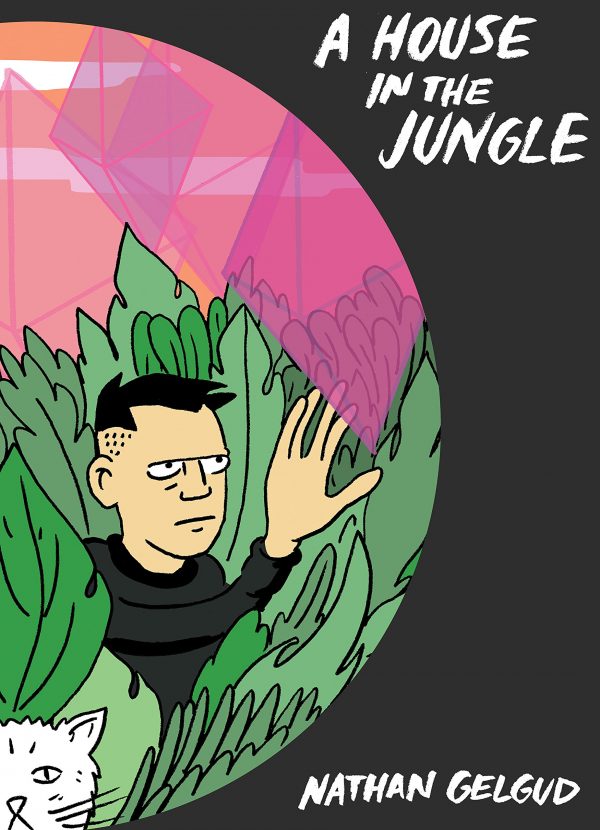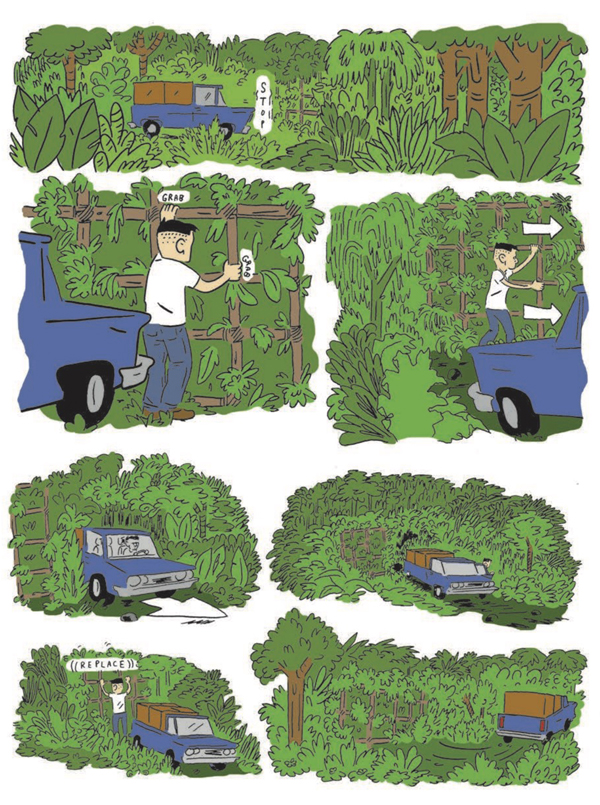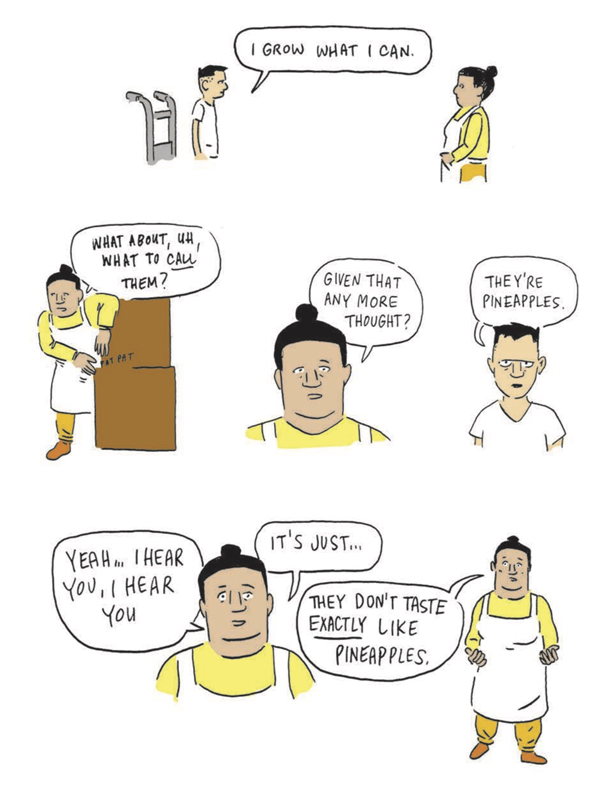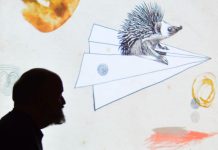In small-town situations, it can be a challenge to live as an outlier. You might be able to separate yourself from the general networking involved in a community, but eventually, you will need something, and that will place you write in the center of the very thing you seek to avoid. You might want to lay low with your opinions that reveal why you are an outlier, but by putting yourself back there it’s like the community is poking a finger in your chest repeatedly, and you end up saying something. The more you say, of course, causes the community to consider you separate from it because you don’t fall in line. And your alienation grows because, well, you’ve been made alien.
This dynamic repeats itself in surely thousands of towns and villages probably around the world and over decades. When one outlier passes on, another comes around to fill that role. It is a regular aspect of human existence.
Nathan Gelgud’s graphic novel debut A House In The Jungle captures a slice of that aspect, at least in the experience of one man, and puts it in the form of a surrealist comedy fable.
In this case, it’s a brand new town, an area that has just gotten the official designation as Demerville, and with that transition, some of the aspects of a non-incorporated way of life are destined to fall by the wayside at the decree of the new mayor. That’s how it is for Daniel, who lives in a secret area in the jungle, raising some form of mutated pineapples that he sells at the local grocery store. These pineapples are becoming hugely popular. With demand on the rise, the plants themselves mysteriously meet that obligation apparently of their own volition, but Daniel is unaware that the reason the pineapples are so popular is the high they bring after ingesting their juice.
That creates a whole other series of problems — missing people, missing dogs, vagrancy, all of which those in charge in Demerville are able to, through a whisper campaign, blame on the popularity of the pineapples. At the same time, Daniel is discovering that the mayor is actively stepping back from agreements that had previously been honored by the leadership in the settlement, shifting Daniel’s position in the new town as a non-citizen with no rights and no arrangements possible.
While all of this goes on, we follow Daniel through his mystical practice, a mix of general meditation styles with cryptic iconography and strange psychedelic minimalism. Daniel is trying to come to terms with everything — literally, everything, himself, his situation, where he lives, reality at large — and his mentor is attempting to guide him past the point where he is always blocked in his meditation routine.
Somewhere, somehow, all of this fits together. But Gelgud doesn’t necessarily spell it out, and while some ends are tied by the finale, there’s enough on the spiritual realm that is left open. Daniel is seeking and normal civilization is not where he is destined to do his finding, that is certainly clear. Ironically, though, it’s only through becoming a little more mixed up in the intrigues of the community he shuns that the doorway is open to further searching within the more mystical realms he wants to inhabit.
Gelgud lets this story unfold with a precise, comical deadpan that rejects traditional paneling in favor of a more free-form flow. There are no borders to his depictions, and actions become stretched out in such a way that we are as aware of each moment in the action as we would be expected to become through meditation. Each moment becomes a building block for what follows, and Gelgud peppers these depictions with some calm psychedelics to bring outwards what we couldn’t possibly see otherwise. He also maps out a wonderful, colorful narrative space, filled with luscious jungle land that at times takes over the pages with extreme and forceful beauty, hinting that what might be at the center of all this is nature itself, with ourselves as just creatures merely touching the surface of a much deeper, more complicated secret.











Comments are closed.